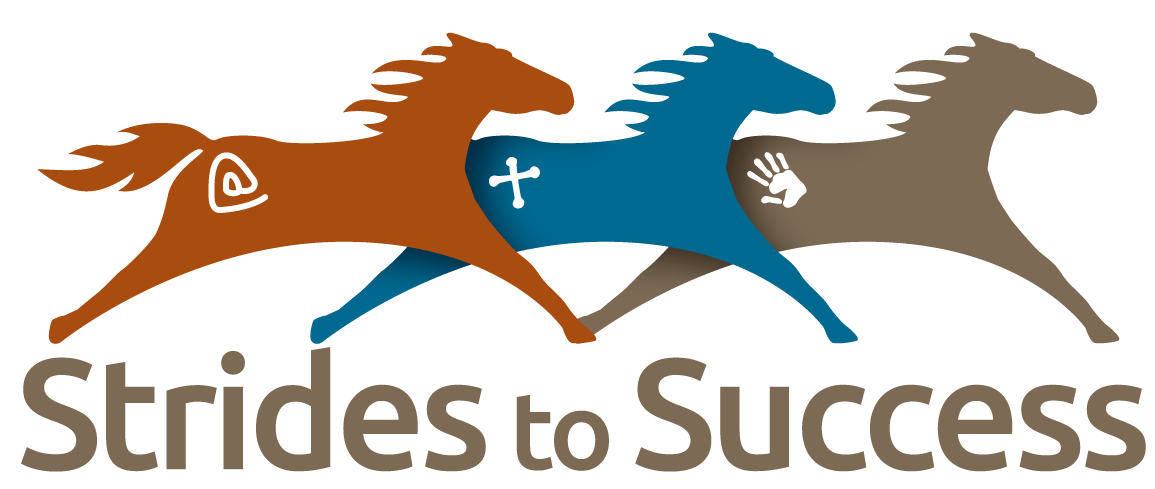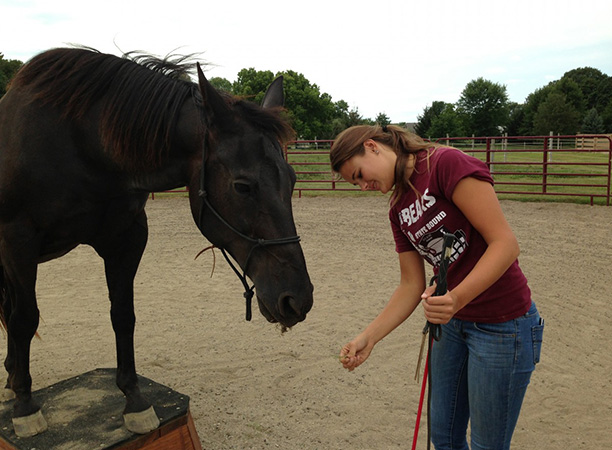Equine-assisted Learning
What is Equine-assisted Learning (EAL)?
Equine-assisted Learning is an experiential learning approach that promotes the development of life skills. This focus on life skills can be related to academic achievement and classroom behavior, personal growth and exploration or professional pursuits such as leadership development, team building and executive coaching.
Who facilitates EAL?
The work is facilitated by professionals who have training and certifications that qualify them to work safely with horses, have knowledge and skill in experiential learning methods and have been trained in facilitation. The highly trained facilitators offer safe, life skill directed sessions for their students. Sometimes sessions are co-facilitated by a team of professionals; one who is the equine specialist and one who is the human specialist. Each member of the team has the necessary skills to work with the type of individual or group in the session. For example, if a horse professional is hosting a team-building session for a corporate group and has not worked in leadership development before , that horse professional would partner with an expert in leadership development to facilitate the session as an equal partnership. Sessions may also be facilitated by someone who is called duly-qualified. A duly-qualified professional is someone who has both expertise in working with horses, but also has additional training in human development and is qualified to work with a specific individual or group. Any duly-qualified professional must have adequate understanding of horse behavior, management and safety as well as an equal understanding of human dynamics and facilitation. This is to ensure that the professional can keep students safe and also create appropriate goals and corresponding activities. If you are not sure whether or not the professional is qualified, ask them what their credentials are and research their governing organizations to see what standards they follow. PATH Int’l. has incorporated much of the ground-breaking work that Debbie Anderson and Blair McKissock have contributed to the field of EAL to develop the accepted professional competencies and operating guidelines for EAL. These competencies are the foundation for all of the professional workshops and training that HorseWork Education at Strides to Success produces.
What does an EAL session look like?
EAL sessions can be individual or group sessions. Each session involves a horse interaction facilitated by the professional or professional team. Though there is always a lesson plan, a good facilitator will often follow the horse’s lead. Often the activities are problem solving based, relationship building or focused on critical thinking skills. Though students can learn horsemanship skills through the sessions, it is usually not the primary goal. Most goals are focused on the development of life skills. Lessons are often groundwork or focused on relationships but could be mounted if it helps the client to meet specific goals.

